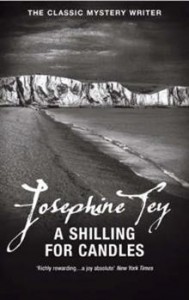Reading progress update: I've read 171 out of 246 pages.

Jammy consigned them all to perdition, and went out to find a tobacconist who kept his brand of cigarettes. What did the Yard want to take it like that for?
Everyone knew that what you wrote in a paper was just eye-wash. When it wasn’t bilge-water. If you stopped being dramatic over little tuppenny no-account things, people might begin to suspect that they were no-account, and then they’d stop buying papers.
And where would the Press barons, and Jammy, and a lot of innocent shareholders be then? You’d got to provide emotions for all those moribund wage-earners who were too tired or too dumb to feel anything on their own behalf. If you couldn’t freeze their blood, then you could sell them a good sob or two.
That story about Clay’s early days in the factory had been pure jam—even if that horse-faced dame had led him up the garden about knowing Chris, blast her. But you couldn’t always rise to thrills or sobs, and if there was one emotion that the British public loved to wallow in it was being righteously indignant. So he, Jammy, had provided a wallow for them. The Yard knew quite well that tomorrow all these indignant people wouldn’t remember a thing about it, so what the hell! What was there to get sore about?
That “hounding innocents to death” was just a phrase. Practically a cliché, it was. Nothing in that to make a sensible person touchy.
A lesson in journalism. Or not.
 3
3














